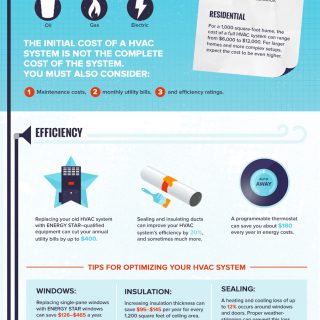Heatpump Vs Heating System - Which Is The Better Heating Alternative For Your Home?
Heatpump Vs Heating System - Which Is The Better Heating Alternative For Your Home?
Blog Article
Created By-Rosenthal Smith
Lots of homeowners are familiar with heating systems, which heat homes with oil or natural gas and press hot air through ductwork. They are reasonably inexpensive and can provide reliable home heating even throughout a winter power failure.
However, heat pump services christchurch utilize nonrenewable fuel sources and generate carbon monoxide and other air contamination. They also aren't as energy-efficient as a high-efficiency heatpump.
Cost
Normally, heat pumps are much more cost effective to operate than heaters. They normally utilize electrical energy and cooling agent to remove warmth from outside air, and after that move it right into your home. You can take advantage of cheaper electricity prices during off-peak hours to even more decrease your home heating costs.
Unlike heat pumps, gas or wood-burning heating systems make use of combustion to create heat, releasing flue gases into the ambience that can be harmful to your wellness. These heating systems are likewise less energy-efficient than heat pumps, and their higher operating costs can accumulate over time.
Heaters are a lot more complex than heatpump and require regular upkeep to ensure the proper feature of all components. In spite of this, they have a tendency to last longer than heat pumps with a typical lifespan of 20 years or more. Nonetheless, you'll require to consider the price of gas, gas oil or timber and the extra equipment required for installation and procedure such as ducts and air flow systems.
Energy Performance
Heat pumps have a greater power performance score than heaters. These systems utilize electrical energy to scavenge warmth from the air, also in freezing temperature levels. They can also eliminate excess heat from the home during warmer months and recycle it to cool down the system. Service provider experts can aid you determine the very best model for your home on environment and source power prices.
Heaters melt fuel oil, propane, natural gas or other kinds of nonrenewable fuel source to warm the air in the home. This air is then spread via ductwork utilizing a large follower. Furnaces create greenhouse gases and require regular upkeep and equipment upgrades to ensure safe operation.
The greatest benefit of a furnace is that it can be run also in extreme wintertime conditions since it does not depend on exterior temperature levels to warm up the air. Heating systems likewise have a longer life expectancy than heatpump and generally last 15 years. They can additionally be coupled with dual fuel choices, which pick the most efficient home heating alternative based upon the climate.
Environment
Heatpump work well in modest environments and use less resource power than furnaces. However, if your area is incredibly chilly, you may need to purchase a common gas furnace instead.
Heaters supply cozy, comfy heat and generally offer fast home heating to increase interior temperatures. These systems can be used with a selection of gas types, consisting of gas, lp, oil or electrical energy.
They eat more power than heatpump-- as much as 3x as much-- and need ductwork that's expensive to install or retrofit. They're additionally extra costly to maintain, as they can trigger air quality concerns and generate greenhouse gas discharges.
If you're committed to reducing your carbon impact, a heat pump is an excellent choice for your home. https://www.prnewswire.com/news-releases/service-fusion-expands-partnership-with-hvac-leaders-trane-and-american-standard-via-integration-agreement-301295898.html have fewer greenhouse gas discharges than furnaces, specifically if you select a power STAR ® heat pump. Your neighborhood Service provider professional can discuss the distinctions between these two heating unit and assist you make the very best decision for your special demands.
Personal Preferences
Furnaces can be really energy reliable when powered by gas, propane or oil, however they aren't as energy efficient as heatpump in freezing environments. They can additionally be much more costly to mount, calling for gas lines and ventilation systems.
Nevertheless, furnaces tend to need less maintenance, which can cause reduced continuous costs. They create fewer greenhouse gases and are extra reputable than heat pumps throughout severe weather.
Electric heatpump are a lot more flexible in producing indoor convenience due to the fact that they can additionally function as a/c throughout warmer months. They can be easier to preserve, calling for just routine air filter changes and periodic vacuuming.
If you prefer the comfort of a single system that does it all, consider a hybrid heating option that sets a heater with an electric heatpump. These systems can instantly switch in between both heating alternatives based on your home's needs and temperature level problems, taking full advantage of effectiveness and cost savings.